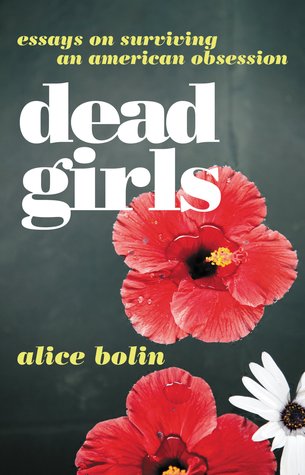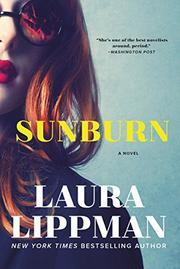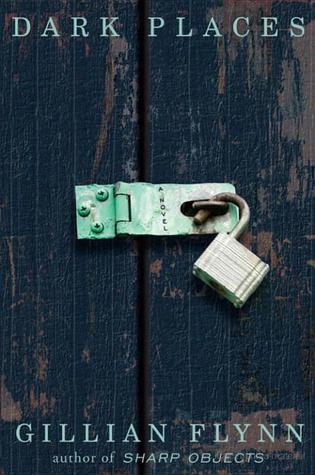
We asked Alice Bolin, author of Dead Girls: Essays on Surviving an American Obsession, and journalist-turned-crime novelist Laura Lippman to discuss a recurring theme in crime fiction: "a beautiful girl dies, and a man feels bad about it." What we got was a rollicking conversation about women readers, the power of noir, and why there's something sinister in romantic-comedy plots.
Dead Girls is one of the Belletrist Book Club's picks for July.
Alice Bolin: Hi, Laura! Let me say how excited I am to have this conversation with you. Thank you!
I wanted to start by asking you a little about Sunburn. Reading this novel was when I first realized that the femme fatale is sort of like the Dead Girl if she hadn't died—we have this idea of "a woman with a past" or, in other words, "a woman." I so admire the compassion you've shown to your femme fatale and how totally human you've made her: a woman who is complicated but who has survived. I was wondering what first inspired you to flip this trope, to make a character who is normally opaque so sympathetic?
Laura Lippman: Although I can almost always pinpoint the exact inspiration for a novel, I have tried and failed to do that for Sunburn. Without really noticing it, I had moved from being inspired by real-life crimes and started rethinking my favorite novels. What if the events of To Kill a Mockingbird took place in what people believed to be a more enlightened time? What if I took the setup of Anne Tyler's Ladder of Years and married it to The Postman Always Rings Twice, but now it's a woman passing through, a man stuck behind the stove?
And there really was—spoiler—a movement in the early 1990s in which the governor began commuting sentences of women who had killed their abusers, but the vetting was poorly done and some women were pardoned when they shouldn't have been. So that's where I started.
Where did Dead Girls start? Was the titular essay the first one?
AB: Well, my book really started with me just wanting to make fun of True Detective, a show I considered hilariously mediocre. My editor told me I needed a more timeless book, so I started with Twin Peaks, and now I will be associated with Dead Girls for the rest of my days.
I thought I was writing in a formal way “about the noir,” but I was also obsessively watching Dateline and reading Raymond Chandler to learn about my new life in Los Angeles (this is not a good way to learn about life in L.A.) and thinking about the weird murders that marked my childhood in the Northwest. It took me a long time to realize that a noirish mood had defined my entire life and that trying to figure out why was a lot of what the book was about—how these dark narratives shaped how I narrated my own life.
I’ve been thinking so much about how when crime fiction is dismissed as a genre, it is often explicitly because it is so feminine. Even Edmund Wilson, in his famous takedown of the detective novel, said it was a genre that was for old ladies. I wonder if you have thoughts about how crime fiction, or certain strains of it, became so associated with women?
LL: Please, let's circle back to True Detective. I know the writer had written a book that was "genre enough" to be nominated for the Edgar, but I was appalled by the viewers who thought they were seeing something new or revolutionary. I knew from episode one that the ending was going to be a terrible letdown. The works that advertise themselves as subversive, the ones where the writers themselves all but declare they are "transcending the genre" (loathsome phrase), almost always disappoint—and are frequently written by people who don't know very much about the genre they're supposedly upending.
It's long been my observation that a lot of crime writing, even very good crime writing, can be summed up this way: a beautiful girl dies, and a man feels bad about it. Maybe he's a mourning husband/father/brother/lover. Maybe he's falsely accused. Maybe he did it, but he has, you know, REASONS. And now we're seeing more and more female writers asserting for their ownership of crime fiction, and it's very exciting.
But, dammit, women ARE the readers. Why shouldn't we own this genre? I mean, I know the NFL makes pink T-shirts and is happy to have female fans, but I don't see them worrying that football isn't female-friendly enough. Well, it's great that lots of men read crime fiction, but I don't think we need to cater to them. And the next step is making crime fiction a lot less white/heterosexual.
When you say noir has defined your entire life, what does that mean? How have those narratives shaped your life?
AB: LAURA, YES. Those are some of the most satisfying few paragraphs I've ever read! Clearly writers like Megan Abbott, Gillian Flynn, and obviously you have achieved their success by exploring hidden corners of womanhood, particularly desire and rage. It's so funny that post-Gone Girl, "psychological thriller" is code for "woman on the edge," when before it was so synonymous with Alfred Hitchcock and his paranoid and pathological men.
Growing up in rural north Idaho, I was aware from a very young age that the region was the subject of many bizarre crime stories, including those of the prolific serial killers who haunted Spokane and Seattle and disgruntled separatists like Ted Kaczynski and Randy Weaver. I was such an anxious and spooky child, very invested from my earliest memories in mythologizing my own life. When I moved to L.A., I heavily romanticized my experience, seeing myself as the protagonist of some coming-of-age tale, because if I didn't, I would have to face the fact that my life was desperate, boring, and sad. Untangling myself from the narratives I'd invented about the character who was myself actually made me braver, because I saw that I had control over my own destiny.
So I was just in a hotel room in Times Square by myself last weekend, holing up in the busiest few blocks in America and watching television with the blinds drawn, speaking of romanticizing my life. I happened to watch the rom-com 27 Dresses, which I described on Twitter as "a movie about Katherine Heigl being really lame and jealous." As I kept watching, I realized that it's a movie about two sisters with different but equally severe personality disorders: the passive-aggressive martyr played by Katherine Heigl and the narcissistic compulsive liar played by Malin Akerman. This premise could be repurposed for other "female" genres: thriller (probably something Single White Female derivative), Lifetime Movie (Did I Kill My Sister?). I know you have thoughts about this movie, but I will lob you this question, which is: What do you think rom-coms and thrillers have in common?
LL: When I think about 27 Dresses, I think about what you wrote about Amy in Gone Girl: “Amy bears no resemblance to any person who has ever walked the planet, but she bears a resemblance to women as conceived of the nightmares of men like Nick.” Those two sisters don’t exist, but they are hardy staples in our culture. The Good Girl, the Bad Girl, the Dead Girl. Seriously, those three types cover the waterfront. And now we have so many self-aware writers (mostly female, but I know a few guys I’d throw in there) who are trying to undo this, broaden it, challenge it, question it.
There’s a line in your book—I won’t get it right exactly—about the responsibilities of the personal essay. That strikes me, in the best possible way, as a very female concern. And maybe a concern for anyone who’s not cis [cisgender] male white heterosexual. The greatest luxury is to speak for one’s self alone and then expect that to be understood, without context. Dead Girls is all about the context—geography, age, experience, your parents, the books you read, the television shows you watched. It is like the thing I like best about 27 Dresses, the montage sequence in which she tries on all those bridesmaid dresses. Only without the male gaze.
AB: Yes, that montage is astounding—showing how mutable women’s identities are and how often we ask women to dress up in one archetype or another.
Shall we recommend some books now? I’ll start with two:
1) The Crime of Sheila McGough by Janet Malcolm, a very strange extended character sketch about a lawyer who tells the truth so scrupulously that she is bad at her job; she can’t wrestle all of the details of her case into a coherent story. Also has some great meditations on con artistry.
2) Dark Places, Gillian Flynn’s second novel, explored the ghoulish aspects of true-crime fandom way before it was a thing.
LL: Dark Places is my favorite—I said we shared a brain.
I also love My Dark Places, James Ellroy’s memoir about his mother’s death. It’s a masterpiece and one of the ultimate Dead Girl stories. I am constantly recommending Mary Gordon’s Good Boys and Dead Girls: And Other Essays. The titular essay is a primer on how to read a Dead Girl story. And I recommend Hollywood Babylon in all its gossipy apocrypha because it’s the under-the-bed book referenced by so many writers I love.
You owe me three; I owe you two. One of mine will be a Didion.
AB: OK, here are my remaining three:
1) One of the most daring and fascinating crime novels I've ever read is The Expendable Man by Dorothy B. Hughes, about a middle-class black man accused of a young white girl's murder. She brilliantly explores why an innocent person might act paranoid or suspicious, particularly when they are the target of racial profiling.
2) I adore Maggie Nelson's first book, Jane, a collection of poems about her aunt who was murdered before Nelson was born. This shows possibilities for sort of a true-crime poetry as well as being a profound work of compassion toward Jane and Nelson's parents and grandparents.
3) I can't recommend Kali Nicole Gross' Hannah Mary Tabbs and the Disembodied Torso highly enough. This is an academic book unearthing a story of a bizarre murder in postbellum Philadelphia. Gross not only tells a fantastic story, but also explores the ways racial categories were redefined in urban centers after the Civil War and how her antiheroine exemplified the kinds of freedom black women could claim at that time.
LL: My penultimate book is On the Contrary by Mary McCarthy. The essay "The Fact in Fiction" changed my life. It convinced me that maybe I could do this novel-writing thing.
And I promised I would include Didion in my final selections, but a confession: I don’t love Didion as much as I think I should, yet your explanation for why you love Play It as It Lays, which gives me an easy out about why I don’t love Didion, strikes me as ungenerous (to you and all the smart women I know who love her).
I do love Slouching Towards Bethlehem, particularly "Some Dreamers of the Golden Dream." I learned an important lesson from Didion, one I’ve paraphrased in book after book, in which I tell stories of people who try to get other people to tell stories. And it is this: Dare to be silent. People lean into silences, fill them.
Am I right that Updike said that the good thing about the dead is that they make space? I guess that’s a kind of silence, and it’s what Dead Girls do. They create spaces for us to fill, with our stories and our theories and our insights. There’s a booming economy in Dead Girls, one in which you and I both trade in (although with perspective and sensitivity and context, of course). But I have a hunch that you and I would happily give up our obsessions with Dead Girls if that meant a world with no more Dead Girls.
AB: I think you’re so right—the Dead Girl is a cipher, or a mirror where people, and especially men, see their own preferred stories reflected back. That’s why I’m so much more interested in survivor stories now, and in women who insist on telling their own stories, even when they are imperfect, inconsistent, and dissatisfying.
P.S. I recently finished Evidence of Love by Jim Atkinson and John Bloom, as recommended by you and Megan Abbott, and I meant to include it in my recommendations. It is one of the craziest true-crime books I’ve ever read, about a gory ax murder in suburban Dallas. It’s pulpy but told in an ingenious way, where you know who did it from the beginning, but not until the end do you figure out why.
Be sure to add Bolin's Dead Girls: Essays on Surviving an American Obsession and Lippman's thriller Sunburn to your Want to Read shelf.
Check out more recent blogs:
Careful or You’ll End Up in My Novel: The Romance Novelist at Work
Jennie Shaw Really Nails Her Book Reviews
12 New Graphic Novels to Keep Kids Reading All Summer
posted by Cybil on July, 13
from Goodreads Blog https://ift.tt/2uEaPwY
via IFTTT















No comments:
Post a Comment